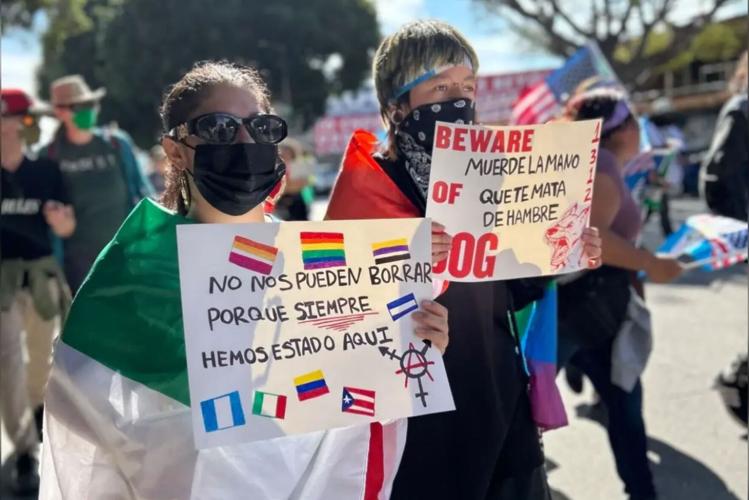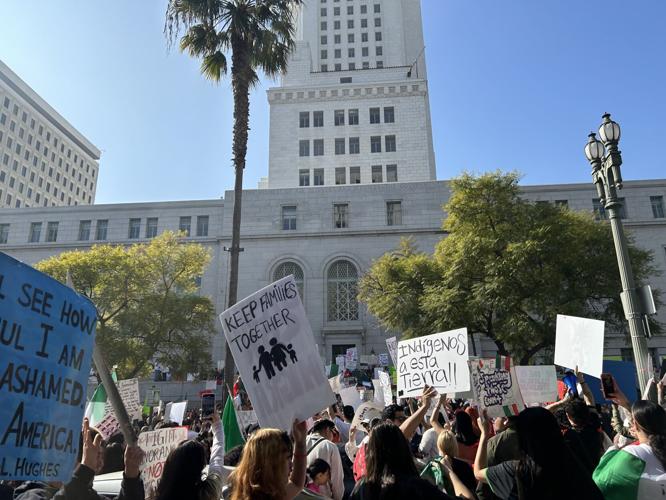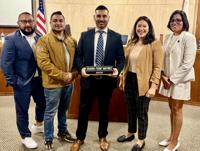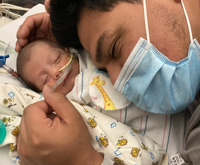
Young adults marching at an immigration rally. (Photo by Amairani Hernandez.)
Immigrant youth and several legal services have filed a lawsuit against the federal government for terminating a policy that protected immigrant children and youth who fled their home countries due to parental neglect, abuse and other mistreatment. The lawsuit seeks to reinstate their protections and stop the government from deporting more than 150,000 immigrant youth.
The program called Special Immigrant Juvenile Status (SIJS) was first initiated by Congress in 1990, offering a pathway to legal residency in the U.S. for individuals who are under the age of 21. It allows them to obtain a green card and potentially pursue citizenship.
“Unfortunately, Congress didn't envision the program to be what it became. There's a huge backlog. And so people are having to wait years and years between the time that they're found to be a special immigrant and the time that they get that green card,” said Rebecca Brown, supervising attorney at Public Counsel.
Since 2016, the growing backlog of visa applications has left these youths stuck in legal uncertainty and unable to pursue permanent residency. This has also forced many young people to put their college dreams on hold, left children aging out of foster care at risk of homelessness, and stripped them of safe job opportunities, forcing them to live with the ongoing fear of deportation.
“The government’s decision to discontinue SIJS deferred action has already hurt me and is going to hurt me in the future,” said A.C.R., an impacted youth. “My dream is to become an astronaut. Without the protection of deferred action, I won’t be able to attend school and pursue my dreams, and I’ll live in constant fear of deportation. I felt that I was finally in a safe environment, but if I had to return to [Guatemala], I would be very afraid of the violence and abuse from my mother and father.”
Brown also told CALÓ News that the majority of SIJS kids are living with some adult who can take care of them. “It might not be a direct parent, but they have someone in their life, hopefully, that can care for them,” she said. But she also explained how other youth are at risk of falling into poverty, falling out of school or falling just into anything that any young person is vulnerable to.
In 2022, under the Biden administration, the U.S. Citizenship and Immigration Services (USCIS), which is responsible for processing immigration and naturalization applications, implemented the now-terminated SIJS Deferred Action Policy to support SIJS-approved youth who were waiting for a visa to become available.
The Deferred Action Policy also protected these youth from deportation and allowed them to apply for a work permit. It became an essential safety net for program participants, as the work permit often served as their only form of government-issued identification. This allowed them to access Social Security cards, driver’s licenses, medical care, health insurance, higher education, bank accounts, and, for older youth, legal and safe job opportunities.

While the Policy was in effect, the deferred action approval rate was over 99%. But now, without the protection of SIJS Deferred Action, these youth again face the risk of deportation and labor exploitation. (Photo by Amairani Hernandez.)
Brown said that in April, the Trump administration quietly withdrew the program. “Advocates across the country were seeing that there were no more deferred action approvals coming in, and it was something that previously had been pretty automatic for the youth who have Special Immigrant Juvenile Status. All of a sudden it was like someone turned off the light; nobody was getting approvals,” she said.
Since Trump took office, he has kept his promises of mass deportations and has eliminated several immigration programs. Without any notification, the administration reversed the SIJS Deferred Action Policy, which prompted several members of Congress, including Senator Catherine Cortez Masto (D-NV) and Representative Jimmy Gomez (D-CA), to voice their concerns in a letter sent to USCIS and DHS requesting further information on the agencies’ handling of SIJS cases and deferred action determinations. According to Brown, there haven't been any updates or announcements on how they will handle cases of those who were on the waiting list for approval.
By June, USCIS officially issued a policy alert eliminating the SIJS Deferred Action Policy. The current and future impact on enrollees is that the USCIS agency will no longer grant deferred action to SIJS youth and will also not allow SIJS youth who currently have deferred action to renew it.
“Every child deserves fundamental protections as they navigate immigration processes,” said Melanie Creps, executive director, Central American Refugee Center (CARECEN). “There is an overwhelming need for more effective guidance and support for the thousands of SIJS beneficiaries who are navigating this process, and CARECEN's capacity to help is already stretched thin.”
With a lawsuit now underway, brought by nine immigrant youth, the Central American Refugee Center, and Centro Legal de la Raza—attorneys from the National Immigration Project, Kids in Need of Defense (KIND), Public Counsel, Davis Wright Tremaine LLP and Lowenstein Sandler LLP have filed a request for a preliminary injunction.
While a specific date has not yet been scheduled, a hearing is expected to take place in August. The lawsuit challenges the government's decision to end SIJS-based deferred action, arguing that it violates the Administrative Procedure Act.
“This is a case about broken promises with devastating consequences,” said Rachel Davidson, Counsel to the Plaintiffs and Proposed Class, National Immigration Project. “State courts and the federal government have already found that it is not safe for these young people to return to their countries of origin, but their protection is now being callously stripped away. These young people have survived abuse, abandonment and neglect only to be retraumatized now by the constant threat of detention and deportation from the same agencies that vowed to keep them safe.”
The supervising attorney also told CALÓ News that they are hoping to obtain an order that will prevent the government from reversing or quickly continuing this action.
“Unfortunately, these things take time, and the life of the lawsuit itself will take years,” Brown said. “Right now we're trying to connect folks with the coalition and get the word out that we are taking action to protect this program and we're standing by them and we're going to fight for what we can.”













(0) comments
Welcome to the discussion.
Log In
Keep it Clean. Please avoid obscene, vulgar, lewd, racist or sexually-oriented language.
PLEASE TURN OFF YOUR CAPS LOCK.
Don't Threaten. Threats of harming another person will not be tolerated.
Be Truthful. Don't knowingly lie about anyone or anything.
Be Nice. No racism, sexism or any sort of -ism that is degrading to another person.
Be Proactive. Use the 'Report' link on each comment to let us know of abusive posts.
Share with Us. We'd love to hear eyewitness accounts, the history behind an article.